“We must not indulge in unfavorable views of mankind, since by doing it we make bad men believe they are no worse than others, and we teach the good that they are good in vain.”
~Walter Winchell
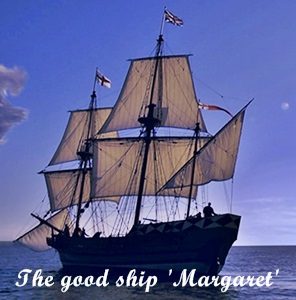
1619 – The ship Margaret, out of Bristol, England, landed 38 passengers at Berkeley Hundred (in an area known then as Charles Cittie and later known as Berkeley Plantation) in Virginia.
The settlers celebrated a day of “Thanksgiving,” establishing the tradition two years and 17 days before the Pilgrims arrived aboard the Mayflower at Plymouth, Massachusetts.
The group’s charter proclaimed that the day “be yearly and perpetually kept holy as a day of thanksgiving to Almighty God.”
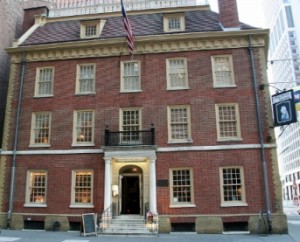
1783 – George Washington, then commanding general of the Continental Army, summoned his military officers to Fraunces Tavern in New York City to inform them that he was resigning his commission and returning to civilian life.
Observers of the intimate scene at Fraunces Tavern described Washington as “suffused in tears,” embracing his officers one by one after issuing his farewell.
Washington left the tavern for Annapolis, Maryland where he officially resigned his commission on December 23. He then returned to his estate at Mount Vernon, VA, where he planned to live out his days as a gentleman farmer.
Washington was not out of the public spotlight for long, however. In 1789, he was coaxed out of retirement and elected as the first president of the United States, a position he held until 1797.
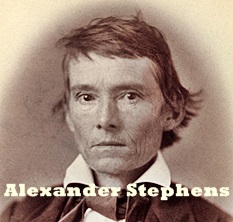
1861 – The 109 Electors of the Confederate States of America unanimously elected Jefferson Davis as President and Alexander H. Stephens as Vice President.
Earlier that year, Stephens had declared that the “cornerstone” of the new government “rested upon the great truth that the negro is not equal to the white man; that slavery – subordination to the superior race – is his natural and normal condition. This, our new government, is the first, in the history of the world, based upon this great physical, philosophical, and moral truth.“
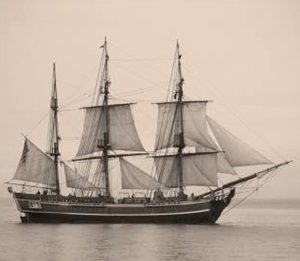
1872 – The Dei Gratia, a small British brig under Captain David Morehouse, spotted the Mary Celeste, an American vessel, sailing erratically but at full sail near the Azores Islands in the Atlantic Ocean. There was not a soul on board.
Captain Morehouse and his men boarded the ship to find it abandoned, with its sails slightly damaged, several feet of water in the hold, and the lifeboat and navigational instruments missing. However, the ship was in good order and the crew’s belongings were still in their quarters.
The ship’s only lifeboat was missing, and one of its two pumps had been disassembled. Three and a half feet of water was sloshing in the ship’s bottom, though the cargo of 1,701 barrels of industrial alcohol was largely intact. There was a six-month supply of food and water—but not a soul to consume it.
The last entry in the captain’s log shows that the Mary Celeste had been nine days and 500 miles away from where the ship was found by the Dei Gratia.
Apparently, the ship had been drifting toward Genoa on her intended course for 11 days with no one at the wheel to guide her. The captain, his family, and the crew of the vessel were never found, and the reason for the abandonment of the Mary Celeste has never been determined.
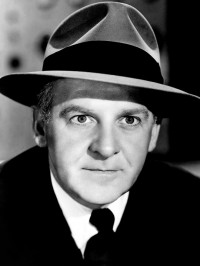
1932 – “Good evening, Mr. and Mrs. North and South America and all the ships at sea. Let’s go to press!”
The Walter Winchell Show (later The Jergens Journal and still later, Kaiser-Frazer News), was first heard on the NBC Blue network. Winchell kept that gossip show going on the radio for 23 years.
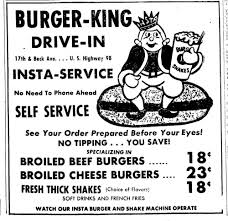
1954 – James McLamore and David R. Edgerton opened the first Insta-Burger King in Miami.
As you can probably guess, the franchise name was later changed to Burger King.
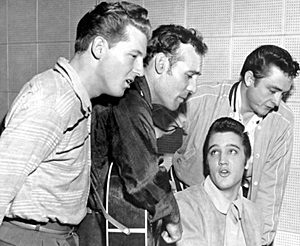
1956 – The “Million Dollar Quartet” (Elvis Presley, Carl Perkins, Jerry Lee Lewis and Johnny Cash) recorded an impromptu session at Sun Records in Memphis.
The jam session seems to have happened by pure chance. Perkins, who by that time had already met success with Blue Suede Shoes, had come into the studios that day to record some new material.
Sam Phillips, the owner of Sun Records, had brought in Jerry Lee Lewis, still unknown outside Memphis, to play piano on the Perkins session.
Sometime in the early afternoon, 21-year-old Elvis Presley, a former Sun artist now with RCA Victor, arrived to pay a casual visit.
At some point during the session, Sun artist Johnny Cash, who had recently enjoyed a few hit records on the country charts, arrived.
Although he swore he was there for the entire jam session, Cash’s voice was only heard on one song … and this song wasn’t the one.
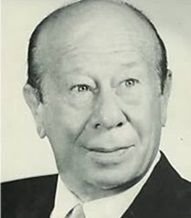
1967 – Actor Bert Lahr died of cancer at the age of 72.
He appeared in many films and performed on Broadway but is forever remembered as the Cowardly Lion in The Wizard Of Oz
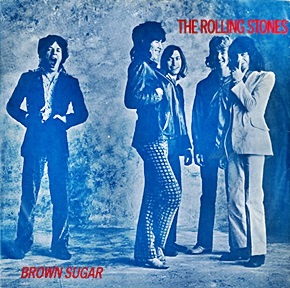
1969 – The Rolling Stones recorded Brown Sugar at Muscle Shoals Sound Studio in Sheffield, Alabama.
It was released in May 1971 as the first single from the Sticky Fingers album.
Despite its controversial subject matter, the song became a #1 hit in both the United States and Canada and a #2 hit in both the United Kingdom and Ireland, and has since become a classic rock radio staple.

1971 – A fire at a Frank Zappa & The Mothers Of Invention concert at the Montreux Casino in Montreux, Switzerland was later immortalized in Deep Purple’s Smoke On The Water.
Midway through the Mothers’ concert, Don Preston was playing his synthesizer solo on King Kong when the casino suddenly caught fire after someone in the audience fired a flare gun into the rattan covered ceiling (as mentioned in the “some stupid with a flare gun” lyric).
The resulting fire destroyed the entire casino complex, along with all the Mothers’ equipment.
The “smoke on the water” that became the title of the song referred to the smoke from the fire spreading over Lake Geneva from the burning casino as the members of Deep Purple watched the fire from their hotel across the lake.
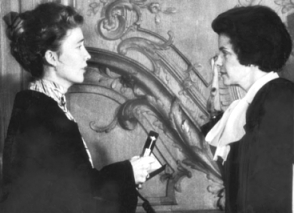
1978 – Dianne Feinstein became San Francisco’s first woman mayor when she was named to replace George Moscone, who had been assassinated.
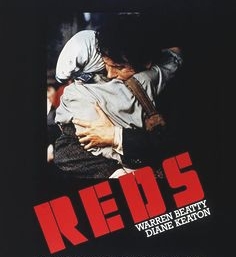
1981 – Reds, a movie about an American Communist and the Russian Revolution, written by, directed and starring Warren Beatty, premiered in U.S. theaters.
The film, based on a true story, received 12 Academy Award nominations, including Best Picture, Best Actor (Beatty) and Best Actress and Best Supporting Actor for Beatty’s co-stars Diane Keaton and Jack Nicholson. Beatty took home an Oscar for Best Director.
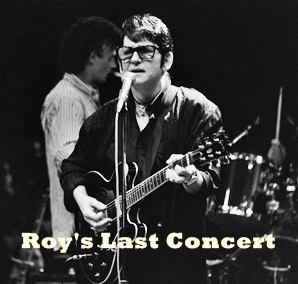
1988 – Roy Orbison’s last concert was held at the Front Row Theatre in Highland Heights, Ohio.
One month earlier, he had confided in Johnny Cash that he was having chest pains but was determined to honor his concert demanding schedule.
Exhausted, he returned to his home in Hendersonville, TN to rest for several days before flying again to London to film two videos for the Traveling Wilburys.
On December 6, 1988, he spent the day flying model airplanes with his sons and ate dinner at his mother’s home in Hendersonville.
Later that day, he died of a heart attack at the age of 52.

1991 – Islamic militants in Lebanon release kidnapped American journalist Terry Anderson after 2,454 days in captivity.
As chief Middle East correspondent for the Associated Press, Anderson covered the long-running civil war in Lebanon.
On March 16, 1985, he was kidnapped on a west Beirut street while leaving a tennis court. His captors took him to the southern suburbs of the city, where he was held prisoner in an underground dungeon for the next six-and-a-half years.
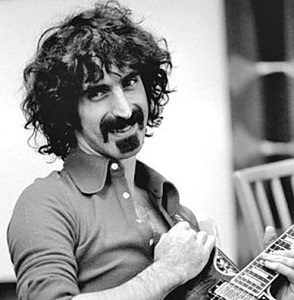
1993 – Musician Frank Zappa died at the age of 52 after a long battle with prostate cancer.
He was one of the most innovative and versatile rock musicians of his generation, creating a vast body of work that encompassed almost every genre of music.
Zappa first came to widespread public attention in 1966, the year his first album with the Mothers of Invention was released.
Characterized by a bizarre melting pot of musical influences, satirical lyrics, extremely high instrumental values and outrageous theatrical performances, that group attracted a strong base of public support while breaking almost all of the established rules of the music business.
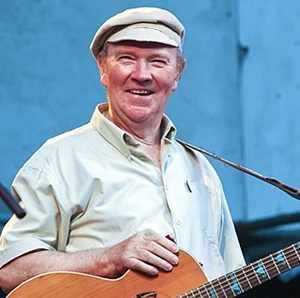
2009 – Liam Clancy, the youngest and last surviving member of the influential Irish folk group the Clancy Brothers, died from pulmonary fibrosis at the age of 74.
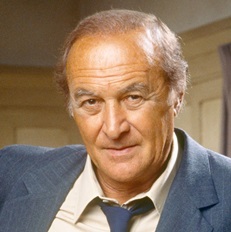
2015 – Actor Robert Loggia died from complications of Alzheimer’s disease at the age of 85.
In a career spanning over sixty years, Loggia performed in notable films such as The Greatest Story Ever Told, Revenge of the Pink Panther, An Officer and A Gentleman, Scarface, Prizzi’s Honor, Oliver & Company, Independence Day, and was nominated for the Academy Award for Best Supporting Actor for Jagged Edge.

2017 – The Thomas Fire started and became (at the time) the largest wildfire in modern California history (since surpassed by the Ranch Fire, part of the Mendocino Complex, less than a year later in August 2018).
It began north of Santa Paula and south of Thomas Aquinas College from which the fire was named.
The fire burned 440 square miles (281,893 acres) in Ventura and Santa Barbara Counties before being fully contained on January 12, 2018.
Damages exceeded $2.2 Billion.
Compiled by Ray Lemire ©2019 RayLemire.com / Streamingoldies.com. All Rights Reserved.
Today’s post reminded me how much music history has been made in our lifetime Ray … it’s truly amazing …. less amazing was Alexander Stephens’ opinion of blacks … that was sad to learn…. as was Roy Orbison’s untimely death – I expect many performers go on when they are not well we all forget to smell the roses at times – today I will try to smell the roses — hope you do too …. let’s Rock this Day!
Barbara, thanks for fighting through the Facebook nonsense.
I HAD to include the repulsive remark by Stephens to show how vile the times were back then.
As for musicians, no one had a sweeter voice than Roy. No One.
Rock The Day!
Barbara seems to express exactly what I am feeling, reading this today. Loved everything Roy Orbison recorded. As for Stephen’s quote, it is still hard to believe that leaders could have this opinion, and there are people today who still believe this. I took a tour of Jefferson Davis’s residence, after the war, in Biloxi, Ms. The tour guide insisted that the Civil War was about state’s rights, not about slavery.
Barbara provides consistently great comments… I agree with you on Roy. Such a sweet voice… Stephens and Davis did not get along well during the short-lived Confederacy. That tour guide wasn’t far off. The war was about a lot more than slavery.